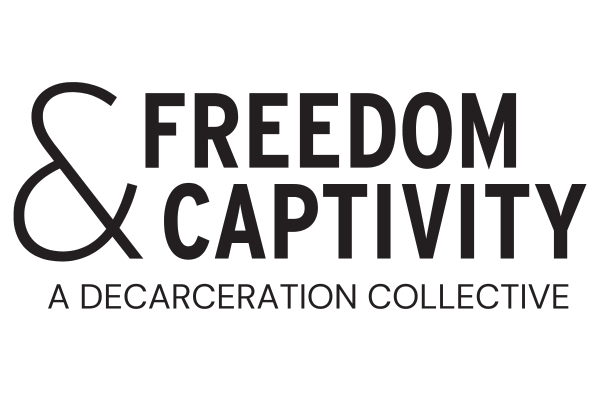Parole offers an opportunity for a more just Maine
This op-ed first appeared in the Bangor Daily News on June 23, 2025.
The BDN Opinion section operates independently and does not set news policies or contribute to reporting or editing articles elsewhere in the newspaper or on bangordailynews.com
Peter Ryan is a rising junior at Colby College majoring in government and minoring in environmental studies and art. Alexandra Friedman, a rising junior at Colby College, is pursuing a degree in government with a minor in education. Both are advocates for criminal justice reform.
Imagine this: a person is convicted of a crime and sentenced to 25 years. While in prison, they demonstrate significant growth and rehabilitation and are no longer a threat to society. They have completed educational programs, participated in anti-violence training and substance use treatment. And yet, none of it matters. Despite their transformation they are required to spend all 9,131 days locked in a cell. In Maine, this is not a hypothetical. It is the norm. It’s the law.
In the U.S. there are two main legal avenues for early release from prison: clemency and parole. Clemency allows a governor to reduce one’s sentence with a commutation or erase a conviction with a pardon. Parole gives a board the authority to offer a conditional release for an incarcerated person. Despite this, Maine is just one of four states where parole is not practiced under any circumstances. We urge Mainers to come together and support LD 1941: An Act to Implement Recommendations of the Commission to Examine Reestablishing Parole, which has now been held over to the next legislative session.
The act would allow lawmakers to investigate the practice of parole and consider implementing it in Maine. Parole would allow incarcerated Mainers transformation to be recognized, creating more reform for an already broken and expensive system.
When considering clemency, officials assess factors like excessive sentencing, ineffective counsel, and possible wrongful conviction. The process is meant to reevaluate incarceration and promote justice, but in Maine, this rarely happens.
As of 2022, which is the most recent public record available, Gov. Janet Mills had granted no more than 30 pardons and former Gov. Paul Lepage only granted 112 in his time as governor. There is no public record of Mills commuting a sentence. By contrast, Oregon’s Gov. Kate Brown pardoned over 47,000 people on drug-related offenses in 2022 and commuted 17 sentences.
Maine’s low clemency numbers stem from institutional and ideological barriers including, but not limited to, the governor’s involvement in the process, eligibility requirements, and state’s attitudes towards mercy and forgiveness. There is a significant institutional block that will require bottom- up change at both legal and cultural levels.
So, in the meantime what is the alternative? Logically, it is parole — a system meant to incentivize rehabilitation, reduce prison costs, and enhance public safety. It allows individuals to leave prison short of their sentence and slowly reintegrate into society under supervision. But in Maine, this option doesn’t exist. The state abolished parole in 1976, becoming the first to do so. Sixteen others have since followed.
Maine took such action for a few reasons: to limit judicial and parole board discretion, clarify punishments, and rank crimes more systematically. The consequences of that decision are stark. Today, Maine incarcerates 272 people per every 100,000, which is more than most democratic countries, including the United Kingdom and Canada. With clemency being nearly impossible to get and parole being nonexistent, incarcerated people are left with no opportunities for early release and instead trapped in a cyclical system plagued by racism, violence, and isolation.
Furthermore, the state of Maine consistently ranks around 39th for cost of living, 42nd for personal income, 43rd for business opportunity, 44th for job market, 45th for economic outlook, and 49th for infrastructure. Despite this, the Maine state government spends almost $200 million per year on incarceration facilities and an average of $117,000 on each person they incarcerate.
The issue of parole is relevant to all Mainers: As economic and living conditions continually rank as some of the worst in the nation, the state government pours hundreds of millions of dollars into a carceral system that has largely proven ineffective. It’s time to try something new.
Maine’s prison system has a history of abuse and of embracing violence over meaningful rehabilitation. The state’s carceral system is undeniably a destructive environment with approximately half of Maine’s prison deaths coming as the result of an overdose or suicide, many of which were initially unreported. These people are Mainers too, and no Mainer should be treated this way.
We can’t abandon our community values for incarcerated people and should all be supportive of avenues such as parole that embrace justice and forgiveness over vengeance and punishment. If used appropriately and in the right context, parole has the opportunity to be transformative, oftentimes resulting in lower recidivism rates, keeping our communities safer.
Maine is already known for being one of America’s safest states, but we can always do better, especially when it comes to protecting those that we love. The absence of parole reflects an upsetting truth about Maine’s carceral system: it prioritizes punishment over rehabilitation. Let’s support LD 1941 and work towards a more equitable and just Maine. Speak out. Speak up. Demand change .
Copyright Bangor Daily News 2025
